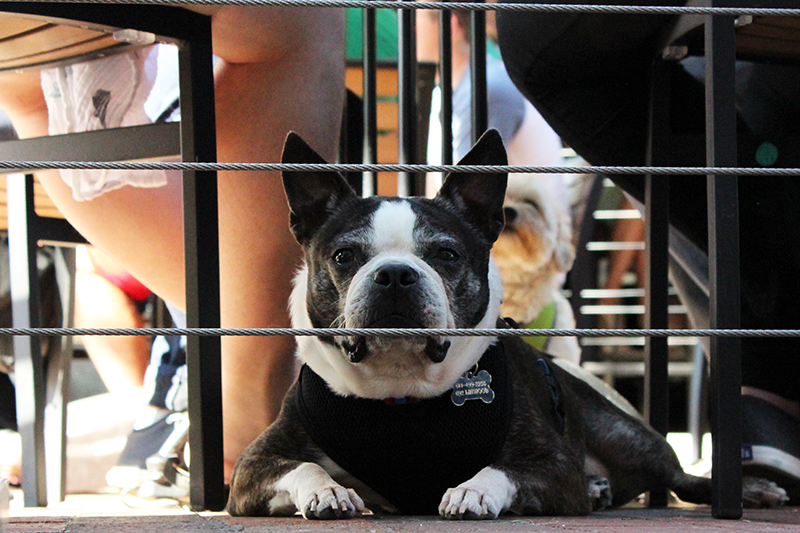
According to a recent study by an Ohio State professor, behavioral issues in puppies do not take away from the love owners have their pets. Credit: Lantern File Photo
Even a few behavioral issues with adopted pets can’t keep their owners from falling in love with their four-legged friends, according to a new study by an Ohio State professor.
Kyle Bohland, assistant professor of behavioral medicine in the Department of Veterinary and Clinical Services, used a Canine Behavioral Assessment and Research Questionnaire to track behavioral changes for the pets of 99 adopters over the course of six months. The questionnaire asked the owners to document changes in the animals, gauge their own satisfaction with their pets and rate changes in certain behaviors from zero to 4.
“We are seeing a pretty high prevalence of behavior problems in our pet dogs, but despite that, people are still highly satisfied,” Bohland said. “So that means there is a very strong human-animal bond that people have with their dog, even in the first few months after adoption.”
In order to determine how well the dogs adjusted to their new homes, the survey was repeated one, three and six months after adoption, with 62 of the 99 owners participating in all four surveys.
According to the study, recently published in the journal PLOS ONE, owners reported an increase in various behaviors at different times, such as owner-, dog- and stranger-directed aggression, with separation anxiety and attention-seeking behaviors ultimately decreasing after six months.
Bohland said many of the behavioral issues are due in part to the effects of the COVID-19 pandemic.
“During COVID, there were various human factors that kind of changed things,” Bohland said. “Socialization was harder to do with dogs at an early age, and so we might be seeing some of those effects in this data.”
At the end of the six-month period, it was found that 100 percent of the owners reported their dogs adjusted extremely or moderately well to their new homes, with 93.7 percent rating their dog’s overall behavior as good or excellent.
Meghan Herron, senior director of behavioral medicine, education and outreach at Gigi’s dog shelter in Canal Winchester, Ohio, said owners should expect to be patient with their dogs as they transition into their new lives.
“It’s pretty rare you’re going to see their full personality that first week,” Herron said. “Typically, I’d say your average dog in two to three weeks is going to start to feel comfortable and come out of their shell.”
When compared to buying from a breeder, Herron said the benefits of adopting a shelter dog are unmatched.
“The bond that you get from helping a dog recover from the trauma of being abandoned and being put through a shelter system — that’s just not something you’re going to get from a breeder,” Herron said.
Bohland said his study has only scratched the surface of what he hopes will lead to more dogs finding their forever homes.
“You always want the things that you find in your studies to make an impact in the real world, and I feel like this study is starting to do that,” Bohland said. “To have this as my first peer-reviewed publication and to have it have so much attention is very humbling.”


